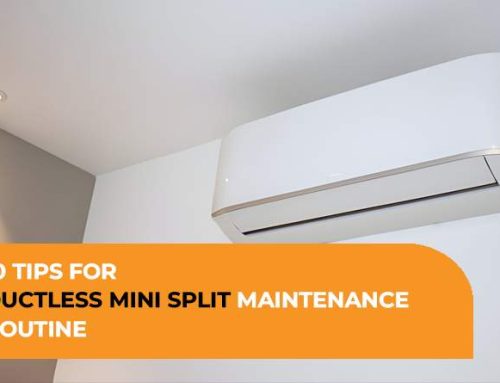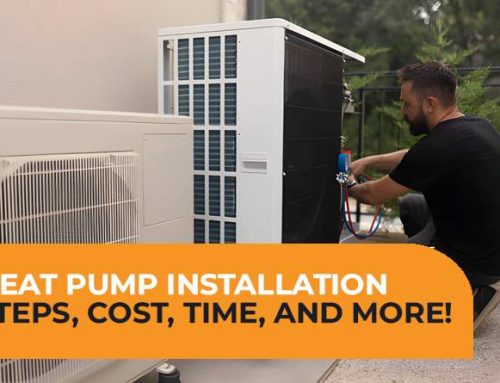If your AC unit isn’t running properly, you’re going to need to get it fixed before the weather gets too hot. AC repair costs can be expensive, but in this comprehensive guide, we will break down all the factors that contribute to the cost. We will also provide some tips on how to keep AC repair costs as low as possible. So whether you’re dealing with a broken AC unit or just want to be prepared for the future, read on for more information!
Average Air Conditioner Repair Cost
The average cost of repairing an air conditioner varies depending on the issue and type of unit. Generally, a service call can range from $50 to $100 or more. Repairs may also include parts replacement, such as filters, belts, motors, compressors, and switches. Depending on the severity of the problem and the complexity of the repair, labor costs for repairs can range from $50-$350 per hour. Costs may also vary depending on the type of air conditioner you have and the model.
High-end air conditioners may incur higher repair costs than basic models due to the complexity of their parts and systems. Additionally, pricing will differ if you need to hire a contractor for the installation or repair. In most cases, it is best to get several estimates before selecting a contractor and make sure that you are comfortable with their level of experience.
Factors That Affect the AC Repair Cost
As we mentioned above the cost of air conditioning repair can vary greatly depending on the underlying problem. Some of the primary factors that can affect AC repair costs include the type and size of the system, the complexity of repairs, unit brand, seasonality, and labor costs.
Type of system: Repair costs for different types of air conditioning systems may vary as some require more complex repairs than others. An AC unit that is outdated or malfunctioning may require more extensive repair work, which can increase the overall cost of the job.
Size of system: The size of an air conditioning system also affects repair costs as larger systems generally require more time and resources to fix properly. Furthermore, a larger system may also require more complex parts which may cost more than those needed for smaller units.
The complexity of repairs: In some cases, a technician may have to do extensive troubleshooting in order to identify the exact cause of an AC unit’s malfunction. This can lead to additional costs for diagnostic services and any repairs that are needed as a result.
Unit brand: The cost of repair parts may also vary depending on the brand of the air conditioning unit. Some manufacturers have proprietary parts that can only be purchased from them, which could increase the overall cost of repairs.
Seasonality: During peak times of the year, when demand is higher for AC repair services, costs may be slightly inflated due to technician availability.
Labor costs: Labor costs are another factor that can affect the total price of AC repairs, as it is typically based on an hourly rate. The cost may also be affected by the technician’s experience and any additional services they provide in order to complete the job.
In addition, some AC repair companies may charge additional fees for their services such as travel expenses or additional parts and materials. Be sure to check with a company representative before agreeing to any repair costs to make sure you understand all the associated fees. All of these factors can affect the overall cost of air conditioning repairs, so it is important to be aware of them before committing to a repair job. Doing so can help you get the best value for your money while ensuring that your AC system is properly repaired and functioning efficiently.
Tips on How to Reduce AC Repair Costs
Regularly Change Air Filters.
Air filters are an essential part of your air conditioner and should be changed regularly. Dirty air filters can cause the air conditioner to work harder, rattling and leading to increased wear and tear that will eventually result in costly repairs or even replacement. Make sure you change your filters according to the manufacturer’s instructions.
Clean Air Vents.
Air vents can become clogged with dust and debris, which can affect the efficiency of your air conditioner and lead to costly repairs. Regularly check the air vents for blockages or buildup and make sure to keep them clean at all times.
Schedule Preventive Maintenance.
Air conditioners should be serviced regularly to keep them in good working order. Preventive maintenance can help reduce the chances of costly repairs down the line and also ensure that your air conditioner is operating at optimal efficiency.
Keep the Air Conditioner Clean.
Air conditioners tend to accumulate dirt and grime, which can affect their performance and lead to costly repairs. Make sure you clean your air conditioner regularly, paying special attention to the multiple parts and components that make up the unit.
By following these tips, you can help reduce the chances of expensive AC repair costs in the future. Remember – regular maintenance is key! Take care of your air conditioner properly and it will reward you with many years of reliable service.
Air Conditioner Repair vs. Replacement
By understanding the differences between air conditioner repair and replacement, homeowners can make an informed decision on how best to maintain the efficiency and performance of their cooling system. Air conditioner repair involves taking care of any existing problems with a unit in order to keep it running smoothly. Air conditioner replacement is necessary when the unit has become too damaged or outdated to be repaired.
When deciding between air conditioner repair and replacement, it’s important to assess the age of the unit, its performance level, and any underlying issues that may be present. Air conditioners typically last around 10-15 years before needing replacement. If a unit is older than this and experiencing frequent problems or is underperforming, it may be a good idea to replace the unit rather than repair it. Air conditioner repairs are most cost-effective when they can extend the life of a unit that has only minor issues or is less than 10 years old.
When considering air conditioner replacement, be sure to review all available units and choose one that offers both reliable performance and energy efficiency. Air conditioners with an Energy Star label will provide the highest level of efficiency and cooling power. Additionally, make sure any potential replacement offers enough cooling for your home’s size and needs.
Now you can know the differences between air conditioner repair and replacement, you can choose the best solution to keep your home cool and comfortable all summer long. With the right decision, you’ll be able to maximize the efficiency of your AC unit and save money on energy bills in the long run.
For more information on air conditioner repair and replacement, contact The Bee Heat & AC today. We will inspect your current system and advise you on the best course of action for keeping your air conditioner running smoothly.


